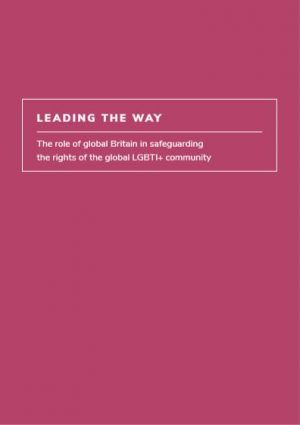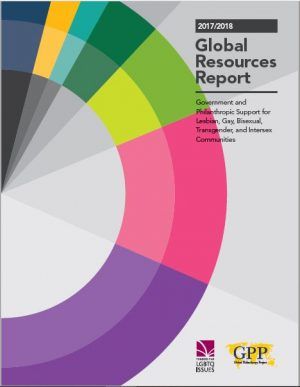Yesterday was the International Day Against Homophobia, Transphobia and Biphobia – a celebration of sexual and gender diversity and a moment to reflect on all the extraordinary work LGBTI people around the world are doing to progress their rights, to create safe spaces and to fulfil their roles as active and equal citizens. At the Baring Foundation, we have been humbled by the way our grantholders and partners have responded to the impacts of Covid-19 and we were proud to share a separate blog on some of this work here.
I am excited that the UK Government chose to mark IDAHOBIT with the announcement of its first ever Global Conference on LGBT Rights and the appointment of a new Special Envoy. This renewed sense of focus and urgency around LGBTI rights is welcome and timely. As LGBTI people around the world begin the long recovery from the pandemic, support, solidarity and collective action from countries like the UK will be crucial.
The appointment of Lord Herbert of South Downs as the new Special Envoy on LGBT Rights is an important additional step that signals the seriousness of the UK Government in supporting LGBTI communities. The Foundation has been a funder of the All-Party Parliamentary Group on Global LGBT Rights since Lord Herbert was Chair and we wish him well in his new role.
In his announcement, the Prime Minister recognised that the pandemic ‘has exacerbated the existing inequality LGBT people experience globally’. He believes ‘this is the time to take collective global action’. I can only agree.
Less than 4 cents out of every $100 of international development assistance goes to LGBTI issues and this chronic underfunding has been reflected in humanitarian funding during the pandemic. Of nearly 4,500 COVID-19 resource mechanisms reviewed in recent research, only one explicitly described funding to support LGBTI communities. These communities remain largely invisible within the global humanitarian system.
For the UK to play its role as a force for good, it has to recognise and address this lack of resources for LGBTI communities. The Foreign Commonwealth and Development Office committed only 0.08% of Official Development Assistance to LGBTI issues in 2017/18 and this figure has fallen further since then In 2020, its major LGBT Rights programme – Strong in Diversity, Bold on Inclusion – was paused indefinitely due to the pandemic. Without this fund, funding amounts to only 0.016% of ODA or £2.3 million in real terms.
As the UK Government fires the starting gun on its conference planning, addressing this underfunding should be at the top of its to-do list. Simply committing 0.3% of ODA would make the UK a world leader in resourcing LGBTI communities. At roughly £30 million at current ODA levels, this would represent more than all the funding received by LGBTI communities in Latin America and the Caribbean in a two-year period. It would enable the UK Government to become a consistent, strategic funder and supporter of LGBTI communities around the world, resourcing them to fashion solutions that work for their local contexts and the challenges they face.
The merged FCDO is in a unique position to make the most of this moment – its new force for good priorities sit across traditional development and foreign policy agendas. Support for LGBTI rights should be at the heart of this interconnected agenda, leveraging the UK’s soft power alongside a new commitment to resource global LGBTI movements.
27 June 2022 will be here sooner than we think. We look forward to working with the UK Government to realise its commitment to global LGBTI equality.

